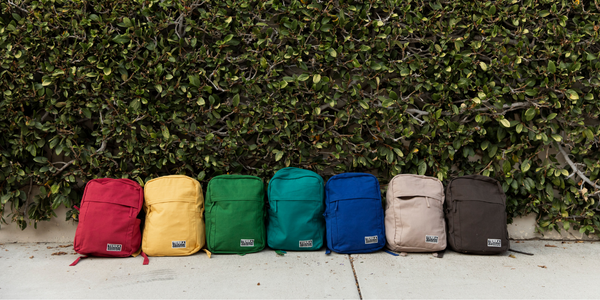The gradual degradation of our world is a consequence of overconsumption. We live in a society where one of the largest generational groups, millennials, are most prone to impulsive shopping. Our conduct of purchasing items mindlessly only contributes to diminishing the planet’s precious resources, thereby putting the billions of people and animals living on it at risk. So, what can we do to address the issue? As consumers, the best thing we can do is put in the effort to take a moment to think before making a purchase.
Table of Contents
It is no news that the majority of the world population is stuck in the fast fashion loop. Fast fashion has the international market by the neck, deceiving consumers with seasonal sales and unethical practices like greenwashing.
Related blog: 5 Reasons to ditch Fast Fashion
To break the vicious cycle of overconsumption, we must strive to be more conscientious of what we buy by asking questions. The answers can serve as indicators to relieve you of your concerns and also help you realize if your desire for a new item is a necessity or a want.
Below we have a few tips on what you should be asking before you decide on investing in backpacks with eco-friendly labels. The same tips can be applied to other products you are probably thinking of purchasing.
Is the backpack material sustainably sourced?
Not all materials are created equally, from the production methods to the carbon footprints. Keep your options open to natural fabrics such as organic cotton, as they have a minimal environmental impact and superior durability and performance.
Terra Thread's fairtrade backpacks are made with organic cotton canvas
If the material is truly sustainably sourced, likely, the brand will also use plastic-free packaging and provide carbon-neutral shipping. Demonstrate your commitment to sustainable living and slow fashion by being thorough about where the material is sourced from and how the backpack is manufactured. Meanwhile, avoid brands who don't care about sustainable materials. Beyond using resources recklessly, they also pay their employees tragically low wages, engage in child labor, force workers to work in hazardous facilities, etc.
Related blog: Organic Cotton Backpacks Vs Polyester Backpacks
Does it mention quality and durability?
This question is related to backpack material, as the service life of any product ultimately comes down to the material used for constructing the bag. A backpack's primary purpose is efficient functionality. You'll be lugging it around daily, subjecting it to a considerable bit of wear and tear. The last thing you want is a bag that has a broken zipper or a broken strap in just a few uses.
At Terra Thread, we use YKK metal zipper on our backpacks.
Sustainable backpacks are designed to be durable, serving you for years (given it is cared for the proper way). Check the label to be sure you’re getting an item that will serve you well down the road.
Does the backpack have a timeless design?
The market is not short of bold backpack designs. They may be in sync with the current trend but what happens once the fad dies? You will end up with a product that only lived a short period, and is now wasting away in the bottom of a trunk. Or worse, you throw it out and it goes straight to the landfill. Having options for different seasons can seem exciting, but seasonal trends are temporary. Meanwhile, classic designs are timeless. Eco-friendly backpacks are one such item that isn't vulnerable to passing trends, plus, it will also help in saving money by not having to buy replacements frequently.
Does the brand practice transparency?
Trust is the cornerstone of any sustainable relationship, and transparency makes that happen. Research if the brand is open about the materials used for their products and the way they’re manufactured, the environmental impacts, and their values and principles. A conscious brand genuinely believes in doing good and has no fear in allowing customers to see what their business is all about. Opt for brands that are committed to ethical sourcing, safe working conditions, fair wages, etc. By supporting sustainable brands, you are contributing to extinguishing unethical behavior. So, make sure to research the brand's background and goals before making a purchase.
Related blog:







